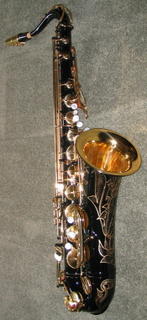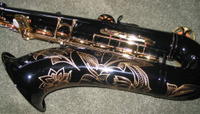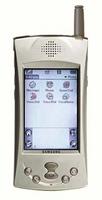Most of you are going to hate this post.
Because I'm about to tell you about three words that you always mis-pronounce.
And pronouncing them right will make you sound like a dork.
Before we get to these three words, I want to share a little theory on how they got so screwed up -- at least in the American English dialect.
Childhood.
That's it. It's what these three words have in common. All of the nouns I'll be discussing are words that have been familiar to children for 100 years. And all of them are words that, for the most part, went unused during their teens. So the pronunciation was never corrected from childhood and generations of people grew up mangling these poor words until the barbarian of Common Usage took over, making the mis-pronunciations the more common variant.
The first word is the most contentious, because the right way to say it sounds the worst to people who grew up hearing and saying it wrong.
Iodine.
The correct pronunciation: EYE-oh-deen.
Yes, "deen". Not "dyne".
I knew you wouldn't like it.

But this word, more so than the others, has the greatest need to be pronounced correctly. Iodine ("EYE-oh-deen", remember?) is an element, and all elements are classified according to certain basic properties on the Periodic Table of Elements. The arrangement of the table is based on the orbital characteristics of each element's electrons.
Before we consider Iodine itself, I want you to look at two other columns in the table. (Click the image to bring up a larger version in a separate window.)
You will notice that the first column is broken, with "H" (Hydrogen) separated from the rest. This is because Hydrogen has no proton particles. Now notice the names of the remaining elements in that column:
Li = Lithium - LITH-ee-um
Na = Sodium - SEW-dee-um
K = Potassium = poh-TASS-ee-um
Rb = Rubidium = ru-BID-ee-um
Cs = Cesium = SEE-zee-um
Fr = Francium = FRANS-ee-um
Note that they all end with "-ium" and the "ee-um" sound. The -ium suffix is an indication of the properties of the element. One additional property of all of these elements (including Hydrogen) is that they are all highly reactive.
Now, let's look at the last column. Again, note that He - Helium is set apart from the remainder of the column. These are all inert gasses. And their names:
Ne - Neon - NEE-on
Ar - Argon - ARE-gon
Kr - Krypton - CRYP-ton
Xe - Xenon - ZEE-non
Rn - Radon - RAY-don
These elemental gasses all end in "-on" and the "on" sound.
Now, let's look at our friend. He's in the next-to-the-last column -- the one labeled "17/VIIA". The elements are:
F - Flourine - FLOOR-een
Cl - Chlorine - KLOR-een
Br - Bromine - BRO-meen
I - Iodine - EYE-oh-deen
At - Astatine - ASS-tuh-teen (heh-heh... he wrote "ass")
Again, they all end with the same suffix "-ine" -- and it is pronounced "een".
Now, if you look up this word in
Merriam-Webster OnLine, you will see that the correct, scientific pronunciation has been relegated to the third position. This is the result of common usage, where most people (incorrectly) say either "EYE-oh-dyne" or "EYE-oh-den".
Next up is a simple one: Licorice.
The correct, but now almost out of use, pronunciation is "LICK-uh-riss". Word-o-philes have a field day with this one.
The word comes from Middle English and is a direct transplant from French. The French still pronounce it "LICK-o-riss".
This, again, I blame on childhood. LICK-uh-riss is one of those words that is hard for young children to get their mouths around. So they often end up saying "LICK-ur-rish" or even "LICK-rish". Unfortunately, parents didn't correct the pronunciation and now generations of adults use the infantile "LICK-rish" pronunciation.
Why do word-o-philes have a field day? Because the French
licorice comes from the Latin
liquiritia, which does have the "ish" sound in it. But, this is, in my opinion, a wild hare, since the French version of the word has no such sound.
And finally, another word that has been beaten down by common usage: caramel.
This particular word has fared better than the other two, because the mispronunciations appear to be regional. The correct, but now less favored, pronunciation is CARE-uh-mel. The more typical, incorrect, pronunciation is CAR-muhl. Again I fly in the face of Common Usage by declaring it to be wrong in this case.
And again, I blame childhood.
But here, the Bible may come into play. There is a Mount Carmel in the Bible. That, combined with the difficulty some children may have had saying CARE-uh-mel, may explain the popularity of CAR-muhl.
What's really odd is looking at the definition of caramel in most dictionaries: they will all show the entry with three syllables, but will show pronunciations with only two.
Even worse is the derived word caramelize/caramelise. Here again, the entry will show four syllables, but the pronunciation keys provide a three syllable word in the primary (most used) position.
I will note that for English, Common Usage is the rule. And for that reason, I would grudgingly concede
caramel and
licorice. But with words whose pronunciation is related to their scientific properties, like
iodine, I will contend that Common Usage does not and
can not apply.
 This was my lunch today from Diet-to-Go. It's one of my absolute favorites: Hummus with warmed pita bread, string cheese and citrus.
This was my lunch today from Diet-to-Go. It's one of my absolute favorites: Hummus with warmed pita bread, string cheese and citrus.


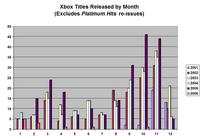
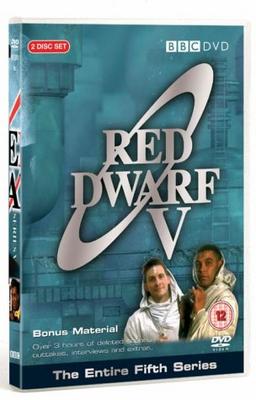
 Sometimes I'll be watching a movie whose plot line is so badly contrived that I can't decide if it was supposed to be camp, or is the result a bad script.
Sometimes I'll be watching a movie whose plot line is so badly contrived that I can't decide if it was supposed to be camp, or is the result a bad script.
 Karl Rove, please, do the right thing.
Karl Rove, please, do the right thing.